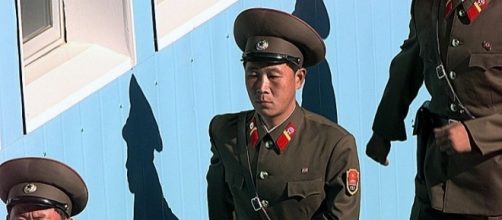Unable to persuade North Korea to halt its nuclear programs, the UN Security Council has decided to exert more pressure on the regime of Kim Jong Un in the form of fresh sanctions. Pyongyang was not deterred by the earlier range of sanctions and had gone ahead with its programs to build its nuclear weapons in total defiance of the world’s sentiments.
The new sanctions are believed to be a retaliatory action for its controversial nuclear programs that has kept the United States on the edge because of Kim’s threat of launching an ICBM that could target the mainland of America.
Aim of the new measures
Sky News reports that the main object of the new measures would be to ban export of specific products from North Korea. This is expected to have a major impact on its economy because it could deprive the country of revenue to the extent of around $1bn which is believed to be approximately one third of its export earnings.
The products that would come under the purview of the sanctions are coal, iron and iron ore, lead and lead ore, fish and seafood. Apart from these, it would not be able to send across more number of workers overseas. This, in turn, will be a matter of concern for Pyongyang because those North Koreans who work in other countries have to remit a major portion of their earnings back home to fill the coffers of the regime.
This is another source of revenue for it to finance its nuclear programs.
In addition to the above, the axe will fall on joint ventures – it will prohibit starting of new joint ventures and also ban fresh investment in existing joint ventures. Moreover, some officials and the country's main foreign exchange bank have been added to the blacklist, but oil deliveries have been spared.
Will the fresh sanctions deliver the goods?
North Korea has got used to bans and, in spite of six rounds of sanctions already imposed on it over the years by the UN Security Council, has carried on with its nuclear programs. It has tested its missiles at regular intervals and have claimed gradual improvement in their performances.
It has also announced that its ICBM could strike the United States. Obviously it has mastered the art of just how to circumvent the sanctions and pursue its agenda.
US ambassador to the UN Nikki Haley has termed the sanctions as penalties against the regime, while UK ambassador to the UN, Matthew Rycroft, has cautioned that the nuclear ambitions of Kim Jong Un could be "catastrophic for the world".
President Donald Trump had wanted China to play a more proactive role to convince Kim Jong Un to shelve his nuclear ambitions. His logic was that China has huge business dealings with North Korea, and Chinese President Xi Jinping could use that leverage to reduce tension in the Korea peninsula. There is no indication of whether that is likely to happen and the effectiveness of the new measures will depend largely on the strategies of China.


